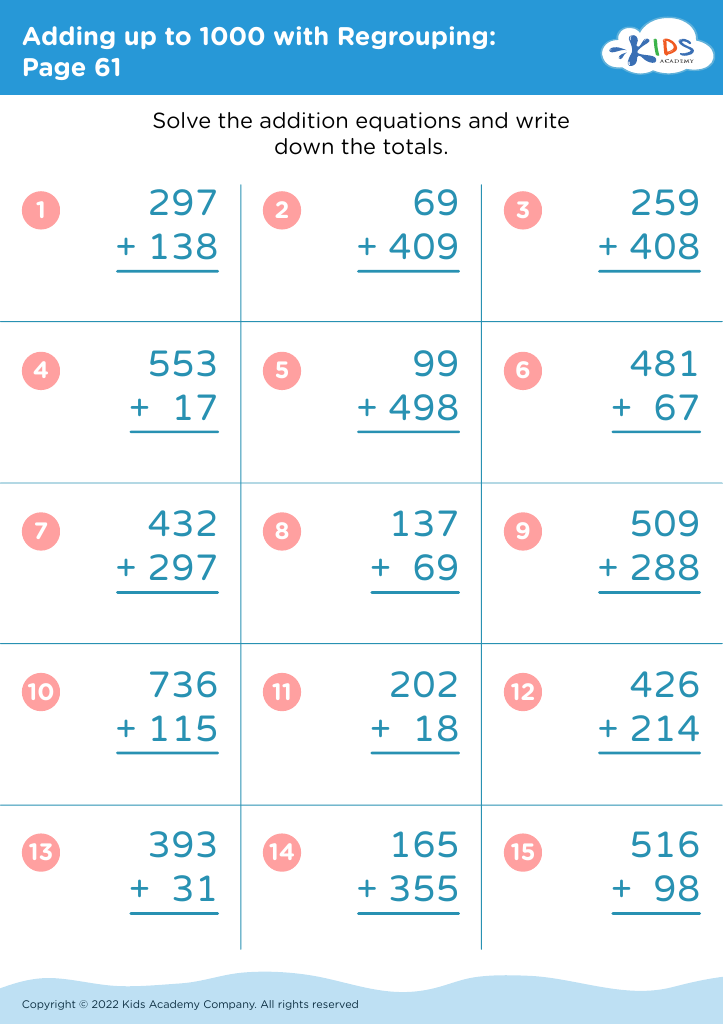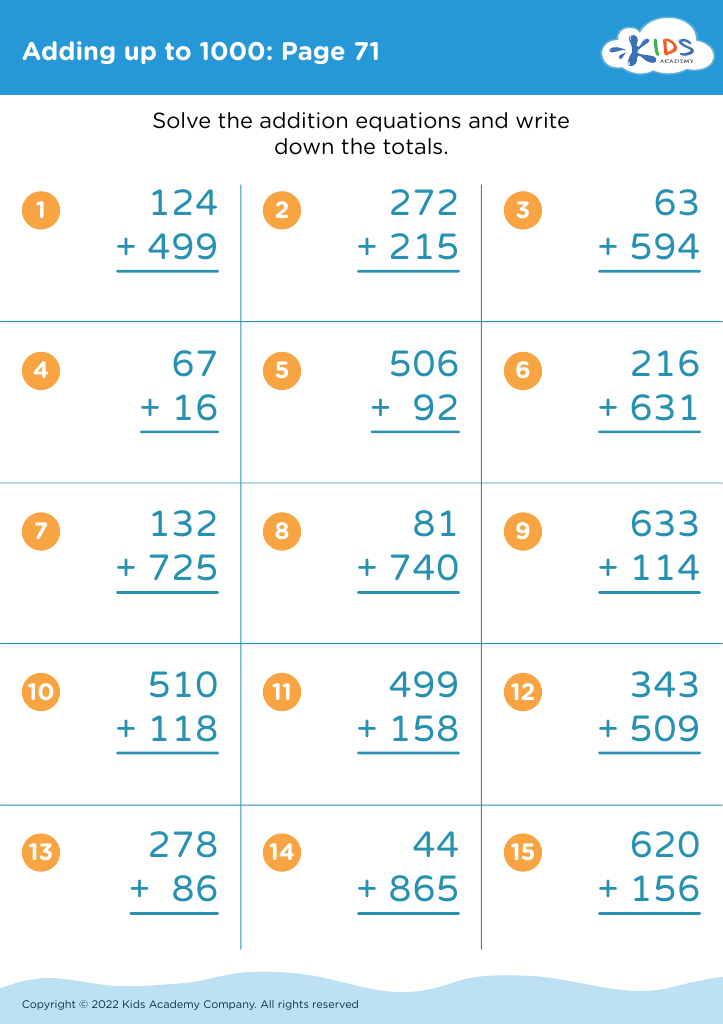Problem-solving abilities Adding up to 1000 Worksheets for Ages 3-8
5 filtered results
-
From - To
Discover our "Problem-Solving Abilities: Adding up to 1000 Worksheets" designed for children aged 3-8! These engaging and educational worksheets enhance essential math skills while fostering critical thinking and problem-solving abilities. Each activity encourages kids to explore numbers creatively, helping them learn the fundamentals of addition and subtraction in a fun and interactive way. Our worksheets cater to different learning styles, ensuring each child can build confidence as they tackle math challenges. Get ready to inspire a love for learning in your little ones! Join us on this exciting educational journey today and boost their math skills effectively!
Problem-solving abilities are crucial for children aged 3-8 as they lay the foundation for cognitive development and everyday functioning. Encouraging these skills helps children learn to analyze situations, evaluate options, and make decisions independently. For parents and teachers, nurturing problem-solving is essential because it fosters critical thinking, creativity, and resilience in young learners.
When children engage in problem-solving activities, they develop the ability to approach challenges with a growth mindset, understanding that failure is a part of learning. This mindset not only cultivates their emotional intelligence but also boosts their confidence, enabling them to tackle more complex challenges as they grow.
Furthermore, problem-solving promotes social skills, as children often collaborate or negotiate with peers while working through issues. Active involvement in these scenarios helps them communicate effectively and build healthy relationships.
Additionally, instilling strong problem-solving skills early on prepares children for future educational rigor. As academic content becomes increasingly complex in later grades, the foundation of analytical thinking laid between ages 3-8 becomes invaluable. By actively guiding and promoting these abilities, parents and teachers equip children with essential life skills that will serve them well beyond the classroom, enhancing their overall development and success.




















